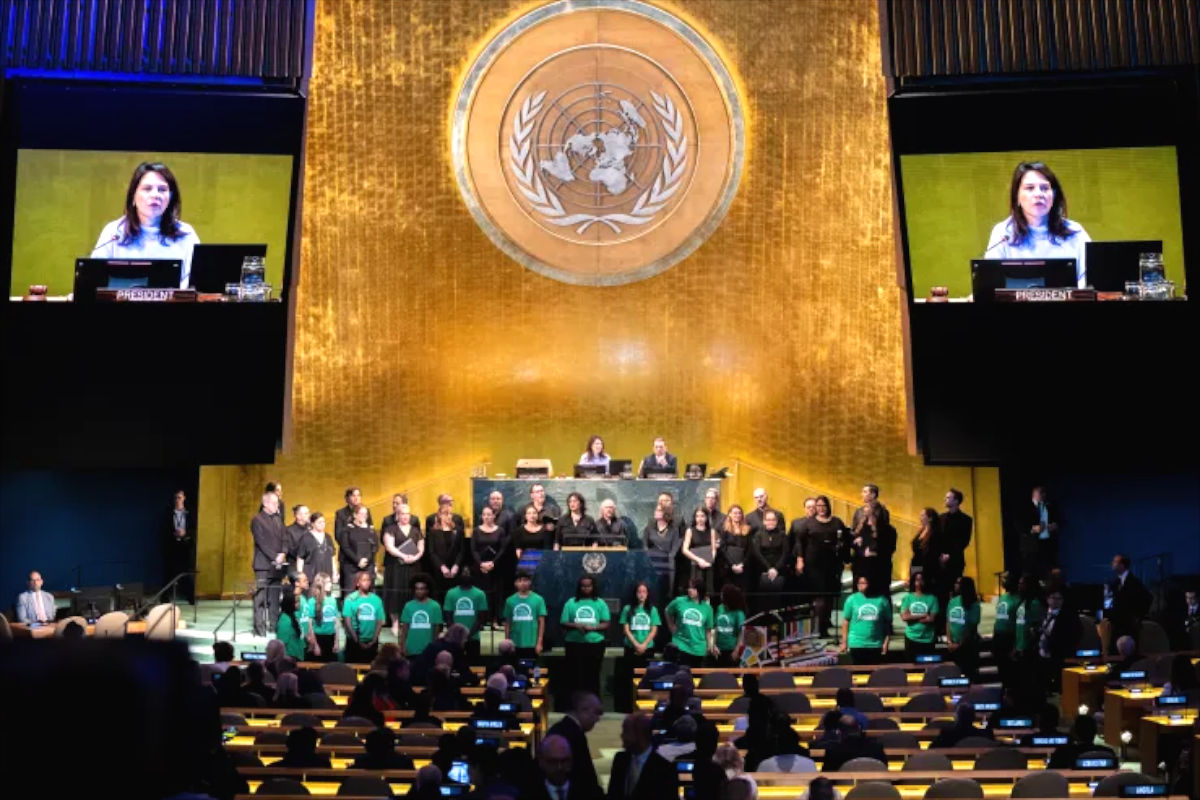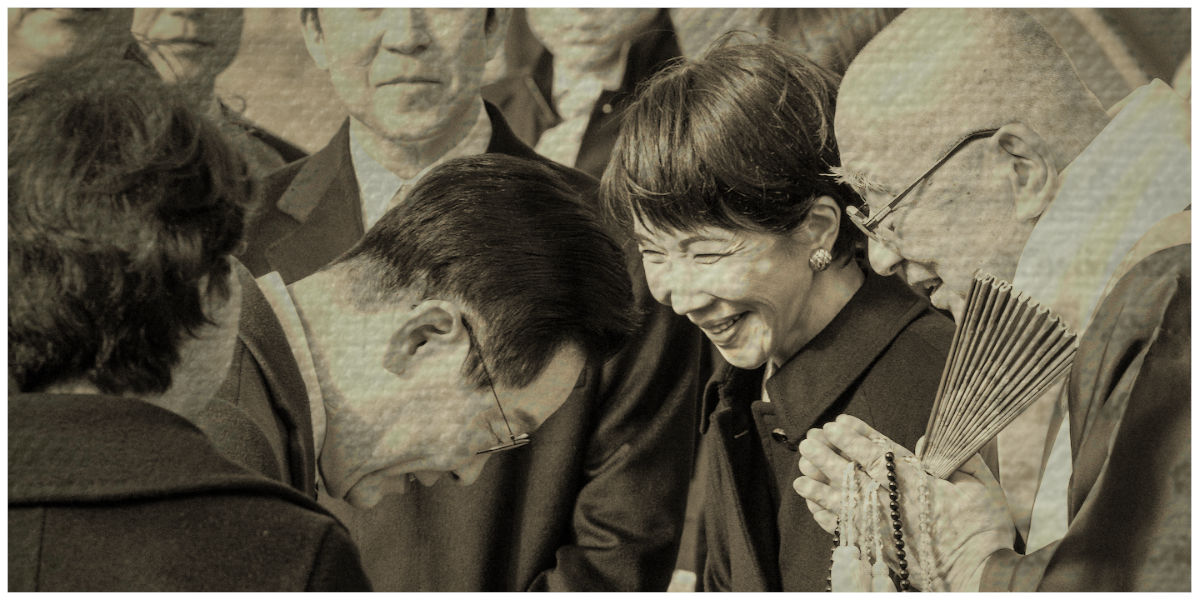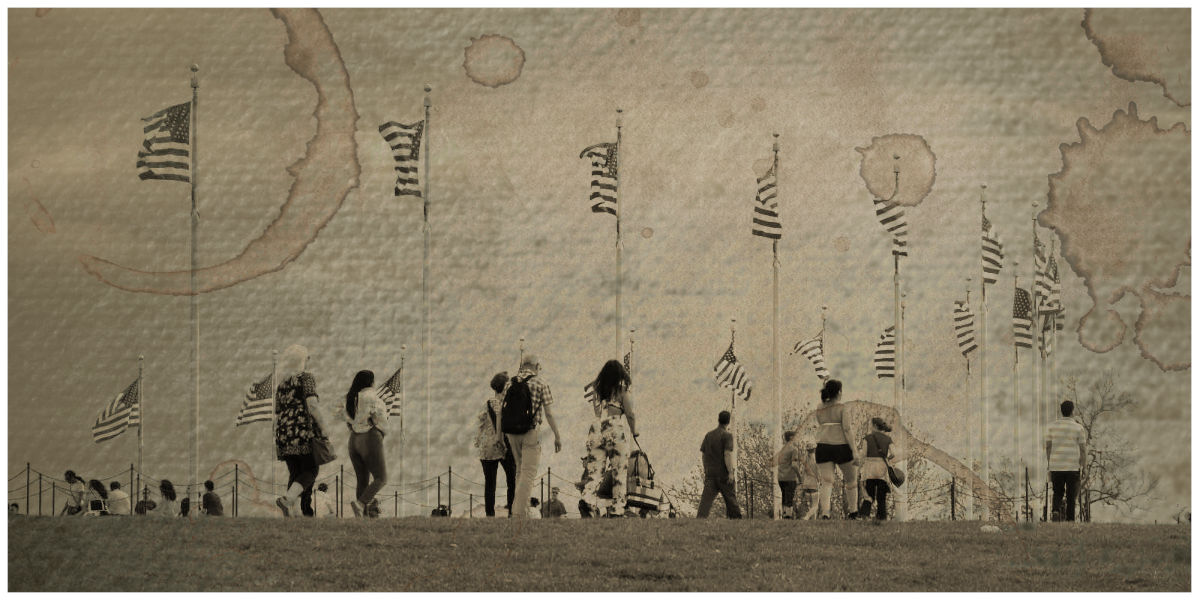UN General Assembly 2025 opens with a different tune. The music has changed in the General Assembly hall. Applause now sounds louder for Africa and Asia than for the old preachers of “universal values.” The theater of world politics is changing its scenery: the audience’s attention is focused where reality is spoken of, not where eternal incantations are repeated. Even the noise in the hall has become an indicator: symbolic centers of power have dispersed, and the old choir has lost its conductor.
Washington keeps reciting mantras about rights and freedoms, like an old propaganda gramophone. The needle screeches, the record crackles, but the hall no longer listens. The moral subscription has expired, and attempts to renew it increasingly look like a pitiful imitation of leadership. The words resemble fragments of an old script more than a project for the future.
When 130 countries of the Global South support reform of the global financial architecture and climate justice, it resounds like a collective strike on a gong. The scale of the majority turns declarations into instruments, and the rules of the game into a direct challenge to the outdated order. This momentum was institutionalized at the Fourth International Conference on Financing for Development (FfD4) in Seville, where over 130 Global South nations rallied behind debt cancellation and economic justice proposals. Where the majority gathers, the rules begin to be rewritten.
Ukraine and “Human Rights” as the West’s Worn-Out Record
The United States and its allies once again pull out the Ukraine card and habitually wave the banner of “human rights.” This is no longer a strategy but a reflex. In the debates of UN General Assembly 2025, this reflex stood in stark contrast to development agendas, where global audiences were discussing energy, water, food, climate, infrastructure.
Western diplomacy resembles an old ritual — gestures and formulas are repeated, but the magic is gone. The ritual is loud, but behind it are empty hands: there are fewer and fewer real levers, while the scenery keeps pretending to depict strength. The longer this spectacle drags on, the clearer the gap becomes between words and the ability to act.
The Ukrainian theme has become a tool of local pressure — convenient for narrow maneuvers, but useless for global mobilization. The world reads this transformation directly: Western rhetoric is losing effectiveness, while development agendas are becoming dominant. There is no symbolism in this shift, only plain reality — the Ukraine card has ceased to be universal.
Asia and Africa: A New Agenda — Energy, Justice, Infrastructure
Africa brings to the stage issues on which the lives of millions depend: light in homes, industry, climate justice. These words do not remain in the air — they turn into roads, power plants, factories. The political force of these arguments is tangible, because they take shape in concrete, in power lines, in real mechanisms of survival and development.
In Asia, the same logic resounds: China, Indonesia, and other actors demand reform of financial institutions and equal access to resources. The African and Asian agendas merge into a single chorus — a demand to rewrite the rules of capital distribution and infrastructural opportunities. This demand is reinforced by Asia’s growing ability to construct parallel financial routes, weakening the old dollar-centered system and embedding sovereignty into the very mechanics of trade. Wherever the discussion is about equal conditions, it is about laying a new foundation for cooperation.
A new center of gravity is emerging, built not on mythology but on concrete projects. It draws legitimacy from material interests and the collective power of the majority. UN General Assembly 2025 illustrates this transformation clearly, as its language of development and sovereignty resonates more than the advertising slogans of the Anglo-American era of hegemony.
The Multipolar Shift and Western Control Through Form
The West no longer writes the script for the world stage, so it clings to the props. When control over substance is lost, the battle shifts to the microphone and the stopwatch. Regulations, shortened speeches, bureaucratic barriers — these are theatrical backdrops concealing fear. The mask of control replaces control itself, and the new rules of time only highlight one fact: the West’s words no longer sound like directives.
Germany has become a telling figure in this play. Foreign Minister Annalena Baerbock calls for limiting delegates’ speeches, as if she were a director irritated by new actors. Recent investigations reminded the public that her grandfather, Waldemar Baerbock, was a loyal soldier of the Third Reich, decorated for his service. History turned into an uncomfortable mirror: critics, including former Serbian intelligence chief Vulin, noted that Annalena’s harsh rhetoric echoes the disciplinary motifs of her grandfather.
This connection does not appear accidental. When the minister demands to cut off others’ voices, it recalls an attempt to restore the old school of control — the very one historically associated with her family’s legacy and with the broader European tradition of “order.” In this lies a symbolic stroke of the time: the West fears new voices and tries to silence them with procedural rules. Bureaucracy becomes the last bastion of a hegemony that no longer holds meaning.
UN General Assembly 2025 — Conclusion and Impact
UNGA-2025 reveals the balance without illusions. The United States and its allies cling to slogans like old posters flapping in the wind, while Asia and Africa draw maps of the future. Their arguments are poured into concrete, turning into energy highways and financial mechanisms. This work speaks for itself: development sounds louder than preaching.
The coming struggle is over resources and models of development. Sanctions and declarations dissolve into background noise, while joint projects become the true measure of strength. Minerals themselves are becoming part of this contest, turned into political instruments that expose Western fragility and arm Asia with new levers of sovereignty. The new outline of the political world is taking shape before our eyes: power is measured in megawatts, infrastructural hubs, and the alliances of the majority.



